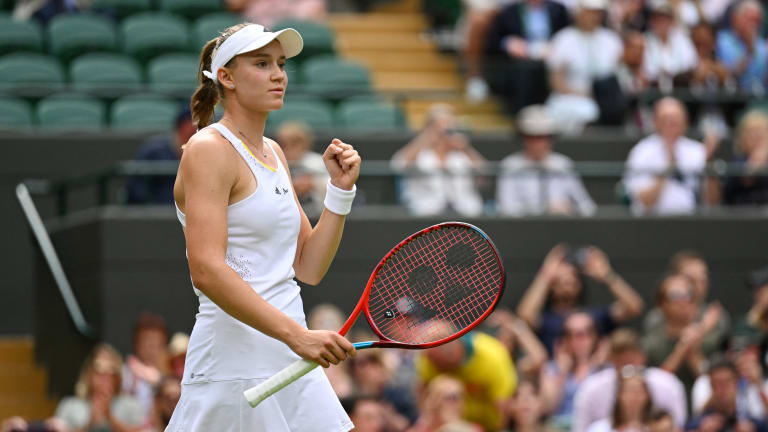Elena Rybakina made history on Wednesday when she became the first Kazakh player to reach a Grand Slam semifinal. It's a result that the Moscow-born No. 17 seed hopes will, in some small way, repay the nation’s tennis federation for their years of support.
“They believed in me,” she said after a 4-6, 6-2, 6-3 victory over Ajla Tomljanovic. “They made everything possible for me to keep playing, keep improving. I had all the conditions to practice and everything. Of course, it helped a lot.”
It was only five years ago that a young Rybakina, then representing Russia during a Top 3 junior career, found herself at a crossroads on how best to proceed: should she pursue an uncertain pro career or instead opt to continue her studies and play tennis in college?
My dad wanted me to go to college because he was worried,” she told WTA Insider back in 2020. “He saw the results, but it was difficult for us financially. It's not easy. Like every parent, he was worried if I get injured.
“I had offers to universities in America, but I didn't even think about it because I wanted to keep playing. I had like 15 offers. My dad really wanted me to go. He thought if I didn't go to university, at home I would not get the same education. Because of tennis, I could get a better education.”
